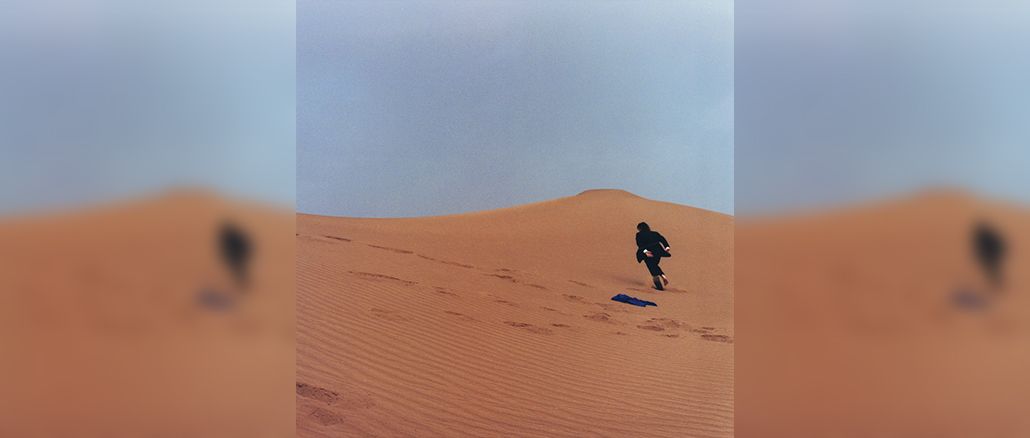Nick Murphy solidifies his new identity on ‘Run Fast Sleep Naked’
by Juliana Van Amsterdam
2019-06-12

Nick Murphy
Run Fast Sleep Naked
Future Classic · April 26, 2019

When an artist decides to reinvent themselves, there can often be a good amount of risk involved. Will their existing fans not like the change? Will new fans have questions about the different name? Nick Murphy, fka Chet Faker, decided to face these potential challenges head on when he released his debut album, Run Fast Sleep Naked, under his birth name. The name change was partially inspired by the legendary producer Rick Rubin, who became a mentor to Murphy over the last few years. Rubin first suggested the name change, and in the spirit of full transparency and honesty to himself, Murphy decided to revert to his birth name. The shift has since opened a new creative avenue for Murphy, allowing him to distance himself creatively from his past works. By shrugging off the mantle of Chet Faker, Murphy has unveiled a certain emotional rawness that was previously masked by the moniker.
Run Fast Sleep Naked took four years to create, as Murphy found himself bouncing around the world to write and record in different “inspiring” places with various creative collaborators. This in itself is a further departure from Murphy’s old persona, as he previously eschewed the idea of partnerships. In his opinion, the exchange of energies in the writing process is extremely personal, which has led him to turn down high-profile collaborations in the past (ahem, Frank Ocean). However, Murphy has since changed his tune, working with Dave Harrington of Darkside and engineer Phil Weinrobe to create Run Fast Sleep Naked. The trio got along so well that there are now talks about starting a new project together, which is tentatively titled “Nick Murphy and the Program.” Through these various professional relationships, Murphy has allowed himself to expand outwards from lo-fi electronica, exploring acoustic piano, funk, and orchestral avenues on Run Fast Sleep Naked. The result is an intriguing cornucopia of different genres contained within one album; Murphy is like a multitalented kid in a candy store, exploring his newfound creative freedom with abandon. However, the flow of the album can appear distracted at times, with, it plays almost as a mixtape of Murphy’s own creations.
For the most part, Run Fast Sleep Naked is a strong debut album for Nick Murphy. “Hear It Now” is an inspiring opener that slowly burns to a satisfying crescendo and proves to be a good introduction for old and new fans alike. Murphy has yet to fully shed himself of Chet Faker here, but he’s experimenting with maximalist instrumentals that swirl intricately around his vocals, rather than falling back on his previous signature of sleepy loops. “Harry Takes Drugs on the Weekend” features narrative-based lyrics and engaging instrumentals, which are decidedly orchestral but still remain generally accessible to a diverse listener audience.
“Never No” moves at a nice clip without ever feeling pressured; Murphy has always had a knack for manipulating time with his music. The track is the most traditional on the album from a songwriting perspective, and thus is a great stand-alone feature. The instrumentals are pleasantly layered, and an ever-building horn section adds a sense of progression and climax that other tracks, such as the loping “Novacaine and Coca Cola,” never quite reach. Murphy’s unique vocals soar to unprecedented heights as well, signaling a sense of freedom that he never fully expressed as Chet Faker. “Believe (Me)” is a gorgeous stripped-down version of Murphy that has previously only been seen in live performances. Amidst all the change and expression on Run Fast Sleep Naked, this track seems to represent his purest form. However, in the spirit of experimentation, Murphy can’t resist a little twist towards the end. The electronic devolution comes as a welcome surprise after being lulled into a sense of acoustic complacency.
A few tracks on the album are a little less self-assured. For the most part, they show significant promise but fail to deliver where it counts. “Sunlight” hovers in a tame, middling space for three and a half minutes without much movement or creative expression. “Novacaine and Coca Cola,” which clocks in around six minutes, has so much potential for an epic build but instead just sizzles complacently. “Dangerous” is probably the closest to indie pop that Murphy gets, but in the context of the rest of the album it becomes “dangerously” derivative. “Message You at Midnight” is a promising closer, but after the quietly stunning “Believe (Me),” it feels like an afterthought. At the end of the day, Run Fast Sleep Naked proves to be an excellent exercise in rebirth and creative evolution for Murphy. There will always be some missteps as an artist navigates new artistic terrains. For the most part, Murphy deftly moves into his new persona, and it is clear to see he has found a skin that he finally feels comfortable in.
